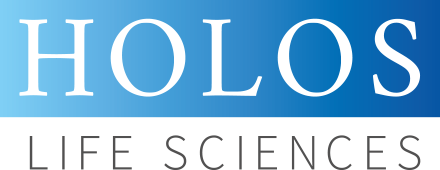PROJECT 3: Epigenetic Response to mild Traumatic Brain Injury
This project is being carried out in conjunction with Manchester Metropolitan University, University College London’s Institute of Sports Exercise and Health, Swansea University and [the Welsh Rugby Union]
The core focus of the project is to identify an epigenetic response to a mild Traumatic Brain Injury (“mTBI”) suffered by a rugby athlete. The epigenetic response to a diagnosed mTBI, along with other biological and digital data, will be used to inform and identify epigenetic markers capable of diagnosing when a person has suffered an mTBI
Preparatory work for the project has been completed with commencement of the project awaiting Manchester Metropolitan University’s ethics committee approval
If successful, HOLOS will one of the very few companies with blood based biomarkers capable of diagnosing mTBIin a binary and timely (24-48hrs) manner
Commercial application
mTBI is a notoriously difficult condition to diagnose, with a range of techniques currently being applied
There is a significantly increased focus on the occurrence of mTBIamongst athletes (young and old, professional and amateur and male and female)
Population health organisations and insurance companies have potential cost and fraud issues due to the difficulty in diagnosing mTBI
The military is heavily focussed on mTBIin both combat and non-combat settings with the US Department of Defensehaving funded several studies and clinical trials
Financial relevance
Current medical management [of TBI] is inappropriately based on a one-size-fits-all approach.
(The Lancet Neurology Commission on Traumatic Brain Injury)oThe care and consequences of TBI are estimated to cost the global economy US$400 billion annually. Given an estimated gross world product of about $74 trillion, this means that about $1 in every $200 of annual global output is spent on the costs or consequences of TBI. (Ibid.)
The CDC estimates that between 1.8 million and 3.6 million Americans suffer from TBI annually.
(CDC TBI and Concussion Fact Sheet)In April 2015, a settlement of nearly $1 billion was awarded to 20,000 former NFL players who retired prior to July 2014 and “now suffer from various progressive degenerative brain diseases, such as amyotrophic lateral sclerosis and chronic traumatic encephalopathy.
(Insurance Journal; 2016, S&P Global Ratings)Under the terms of the settlement, NFL could be liable to pay up to $5 million to each player with a serious brain condition associated with repeated head trauma,” it said, noting that relatives of players with brain condition who died between January 2006 and April 2015 are entitled to cash payments of up to $4 million. (Ibid.)

